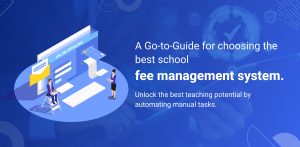Technology integration in Education can be seen as a revolution in terms of teaching and learning. The impact of technology on learning and teaching had a continuous impact and overturned the perception of learning. Technology becoming a part and parcel of our day-to-day life and students’ too embracing technology to improve their learning skills has changed the pace of learning.
The advent of technology and its unrelenting evolution has transformed students to rely more on digital learning technology resulting in the increase of their performance levels. It is evident that textbooks and notebooks are no longer the trends. Rather they have been replaced by tablets, iPads, mobile phones and other electronic devices.
With technology now available in everyone’s palm and everybody’s pocket, students find learning more interesting and imperative. This has further orchestrated to an unceasing increase in the grades of students.
Use of digital devices like laptops and tablets in the classrooms is the current trend at many schools and has been increasing at a phenomenal rate. Most applications or software that are available has resulted in an inclusive and advanced classroom teaching benefitting both teachers and students alike.
Digital learning is constantly transformed with technological advances. Teachers are using online networks and social media to connect with other schools and peers who can help them adapt their teaching practices to make the most of the digital tools.
Students too are using digital technologies to connect with other students across the country and across the world and to engage in self-directed learning in areas of personal interest and expertise. This learning has facilitated them to improve and intensify their learning skills marking a significant development in their grades.
In a recent study on “2016 Digital Study Trends Survey” prepared by Hanover Research in October 2016, many students have claimed that digital learning technology improves their grades. The survey was conducted on over 3,300 students wherein they were asked to reveal their study habits and the role technology plays in learning.
84% of the students reported that use of technology improves their education. While 81% reported that digital learning technology saves their time and improves efficiency in learning. 81% claimed that digital learning technology helps them in boosting up their grades.
The study was mainly conducted with the goal of assessing college students’ digital study habits and experiences. The interesting fact that was revealed during the survey was that students value mobile and learning from their mobiles has enhanced their productivity.
However, when studying at home many students are more stimulated to learn from their smartphones. They perceive it as extremely important for its feasibility and easy accessibility. Apart from mobile phones students opt to study using other options like laptops, tablets and others gadgets at home.
A majority of students are overwhelmed with the emerging technologies and want to infuse them into their curriculum. Acknowledging the usage and aftermath of digital learning technologies, it is transparent that students are embracing digital learning to supplement their academics.
The other advantages of digital learning are it is easy to access and adapt, it has no time or space constraints, learning material continuously updated etc.
With the usage of a variety of mobile devices, tablets and small gadgets to access the internet, it can be seen that in the near future computers will become invisible.













